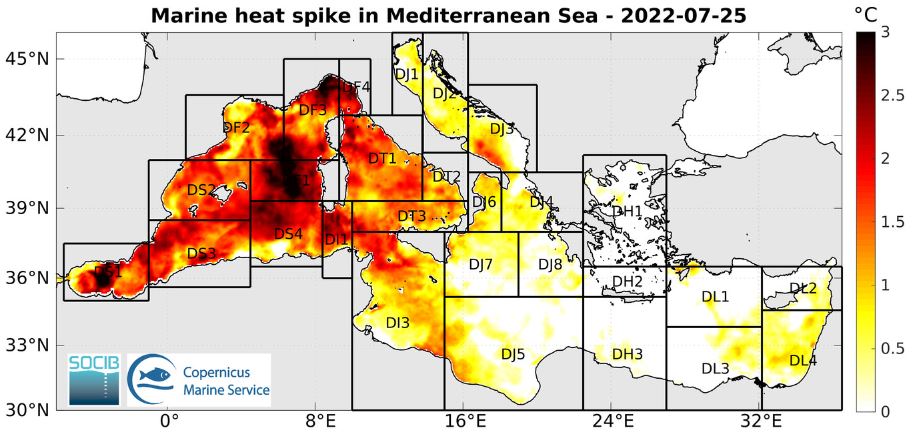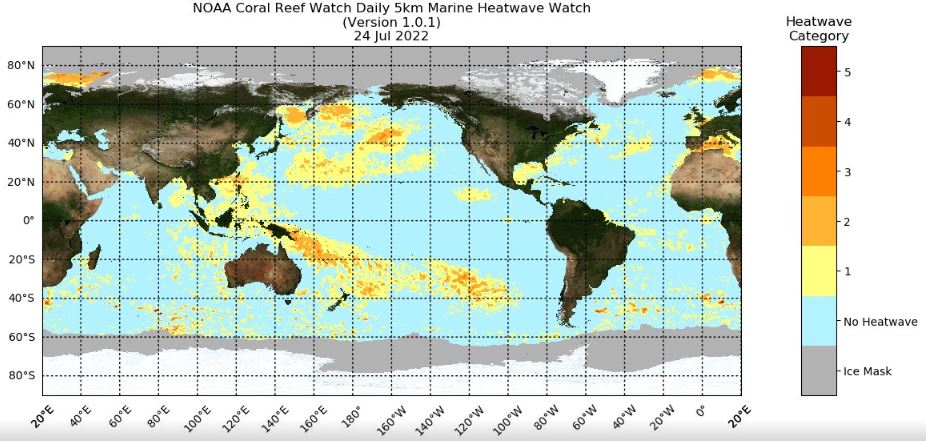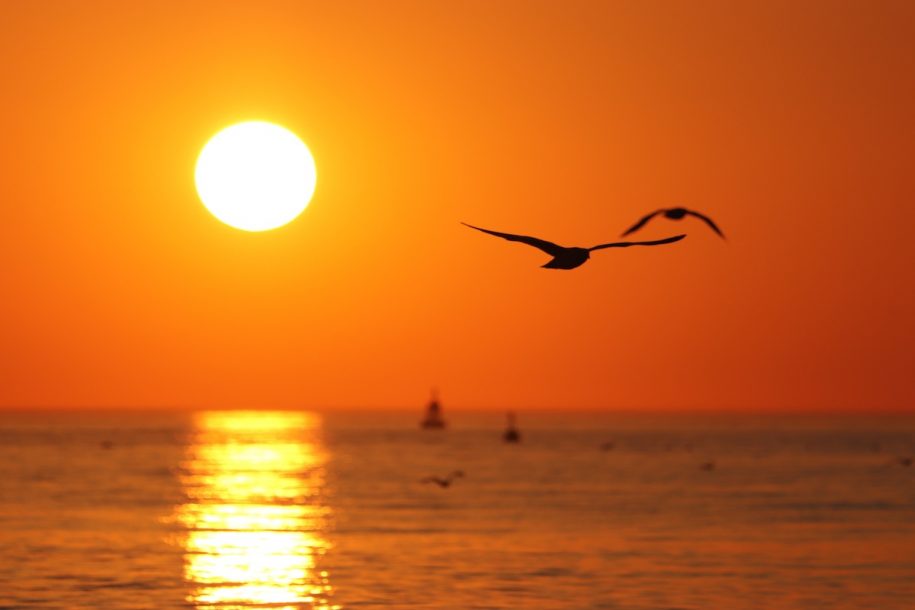Following several broken heat records across Europe this summer, the Mediterranean Sea is currently also being hit by an immense underwater heat wave, according to British weather reporter Scott Duncan.
The "immense and relentless" marine heatwave in the Mediterranean is caused by the unusual heat that has been gripping Europe since the beginning of May, according to Duncan, who monitors record temperatures across the world.
"In some places, it is more than 5°C hotter than average," he said, adding that the western area of the Mediterranean Sea is particularly affected as a category 3 marine heatwave was recorded.

The water temperature in the Mediterranean Sea yesterday. Very high values were recorded, especially in the west. Credit: SOCIB
Such a category 3 is described as "severe" according to the classification of the US National Oceanic and Atmospheric Administration (NOAA). In comparison, category 1 is "moderate" and category 2 is "strong," while category 4 is "extreme" and category 5 is "more than extreme."
According to the French weather channel La Chaîne Météo, the temperature of the seawater off the coast of Corsica and Nice rose to 30°C on Friday, which is considered "a tropical value."
NOAA maps also show that the temperature of the surface water off the Belgian coast is higher than average, up to as much as 3°C. The agency stressed that while a few degrees warmer than average may not seem like much, it still is: water heats up a lot less quickly than air.

Deviations in surface water temperature. It is also up to 3°C warmer than average off the Belgian coast. Credit: NOAA
Underwater heat waves can cause a great deal of damage, as long and intense ones can have "a devastating effect" on marine ecosystems.
Additionally, they also have an effect on the weather over land: warmer water means that the air does not cool off as much, which can cause even more extreme heat waves over land. In late summer and early autumn, it can also cause heavier rains.
The longest marine heatwave ever recorded lasted from 2013 to 2016 and wreaked havoc in the Northeast Pacific. The entire ecosystem in the area was disrupted, thousands of birds died, the number of jellyfish skyrocketed and harmful algae also got a boost, which in turn resulted in the poisoning of marine mammals.

